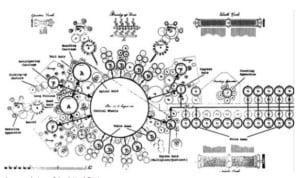What is the oldest Bible in the world? You might think of some dusty old tome secreted away in a vault, but the answer itself is rather surprising. It doesn’t really come as a shock to know that the Bible has such a varied and rich history. As one of the most popular books to still remain in circulation, and being part of one of the biggest monotheistic faiths in the world, it fits.
The oldest Bible in the world isn’t some known translation, however. You won’t find some storied old copy of the King James Bible floating around, just as a general example. Instead, most of the volumes featured in today’s guide have a history that predates the commission of the most famous English version of the text. Let’s dive in and explore a little more about what the oldest is.
The Oldest Bible Primer
It is hard to pin a date on when all of the known books in the Bible were assembled. Canonization itself occurred under the Council of Rome, which was convened under Pope Damasus. The actual writing of the books themselves is scattered through the ages. Volumes of the Old Testament were drafted well before the rise of the Roman Empire.
The New Testament, which is a vital contribution to modern-day Christianity, would be written in the first century of the current era. Compiling these loose volumes into a cohesive whole would be in the fourth century of the current era, driven by the Catholic Church. We could spend all day arguing about which texts are apocryphal, but that defeats the purpose of historical exploration.
The initial compilation consisted of 73 volumes. This compilation would be under scrutiny during the Protestant Reformation, which saw a new canon established for the splintered portions of the church. Catholic canon still maintains the original 73 volumes are the official word, but that’s beside the point. It’s very likely the first distributed copies were around in the late 4th century.
10. The Bishop’s Bible
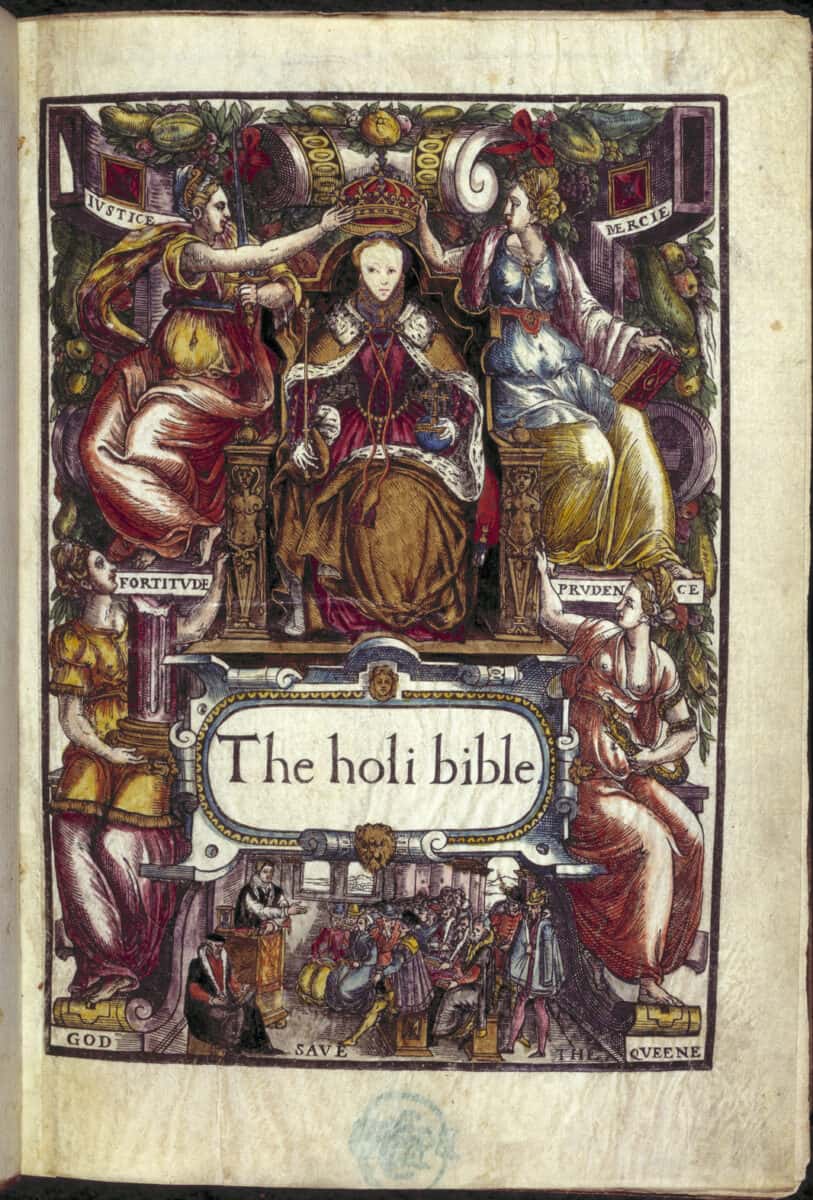
| Date of Publication | 1568 CE |
| Place of Origin/Discovery | England |
| Language | English |
| Translator | Church of England |
The Bishop’s Bible has an interesting history. As you can see in the above figure, this is an English translation of the book. Its exact origin came about following the coronation of Queen Elizabeth I of England. The new Queen commissioned her own version of the Bible through Matthew Parker, the Archbishop of Canterbury.
This is an interesting version of the Bible as it is rife with grammatical errors and translation errors. The featured copy is in English but was translated from three different copies of the book in Latin, Greek, and Hebrew. The Bishop’s Bible is an obscure entry in English language compilations of the book and is rarely seen reissuing today.
9. The Geneva Bible
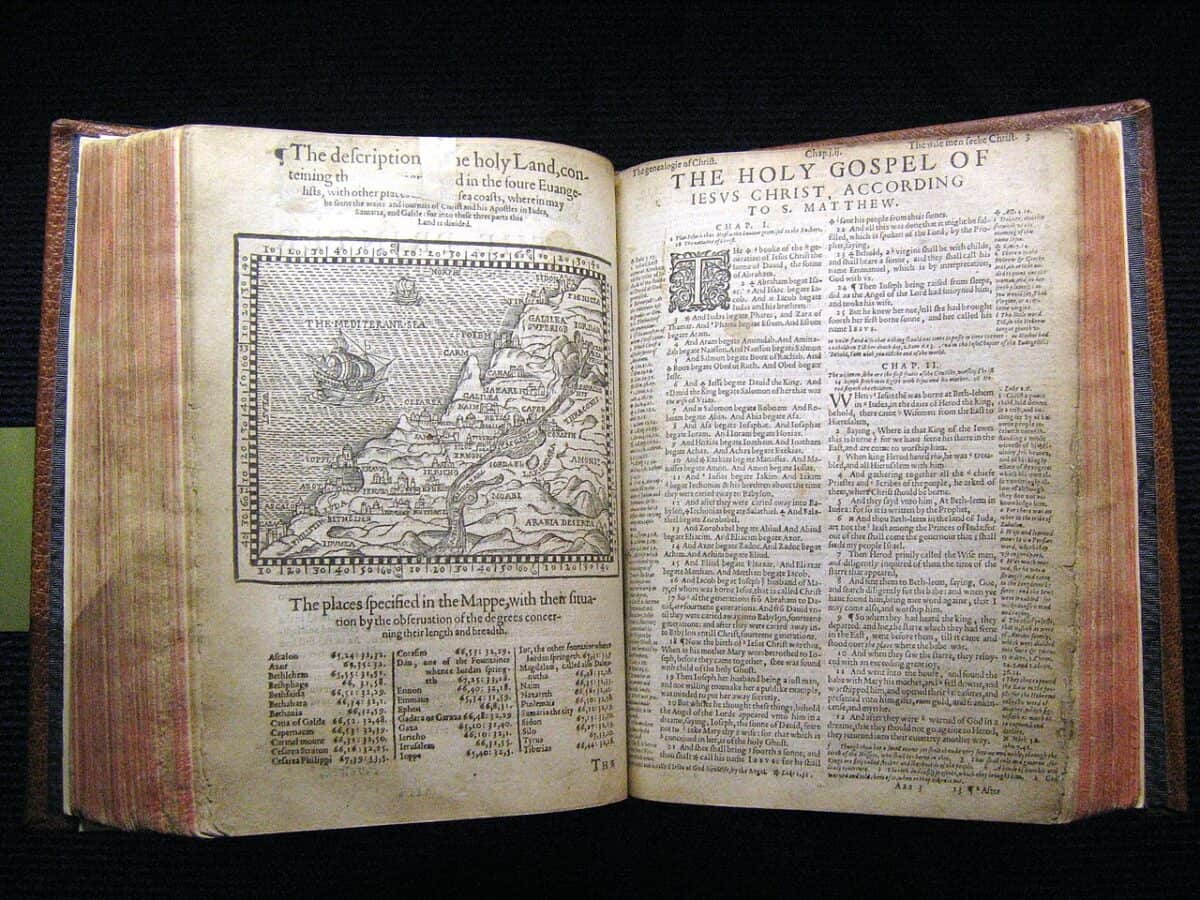
| Date of Publication | 1560 CE |
| Place of Origin/Discovery | Switzerland |
| Language | English |
| Translator | William Tyndale, Myles Coverdale |
England’s history is filled with religious turmoil and strife. The Geneva Bible has its origins around the same general timeframe as the Bishop’s Bible. Despite its place of discovery, the book is written completely in English, an oddity when considering the Germanic roots of Switzerland.
This is due to clergy fleeing England during the reign of Queen Mary when religious figures were persecuted quite severely. Theological studies in English didn’t cease, however, and led to studies being conducted in English all throughout Europe. The Geneva Bible is a significant entry in the English language translation of the book.
A copy of the Geneva Bible would make its way to Plymouth Rock, Massachusetts, carried by the Pilgrims on the Mayflower during their fated trip. You can still find a copy of this readily online and unlike the Bishop’s Bible, it is far easier to read with a modern mindset.
8. The Great Bible
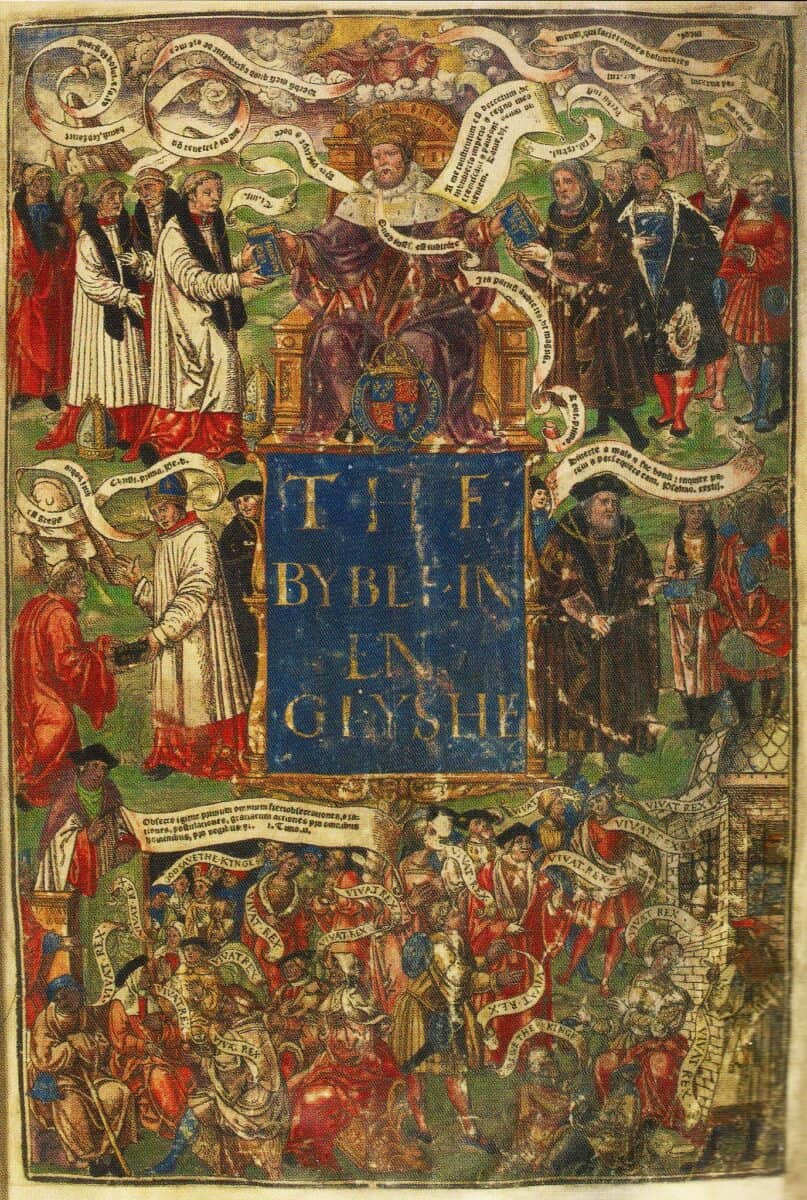
| Date of Publication | 1539 CE |
| Place of Origin/Discovery | England |
| Language | Modern English |
| Translator | Myles Coverdale |
The Great Bible is yet another English Bible and features contributions from Myles Coverdale. This particular volume was commissioned by King Henry VIII of England and was required by every church in the country. As a Bible itself, however, there isn’t much to be said of its accuracy.
While it is one of the first mass-produced Bibles to reach a country, with some 9000 copies or so printed, it was heavily based on religious writings. That said it does have some landmark achievements, like the first colored title page to be included in a volume of this sort. It might not be one for accuracy, but it is an intriguing development that hints at greater national turmoil.
7. The Coverdale Bible
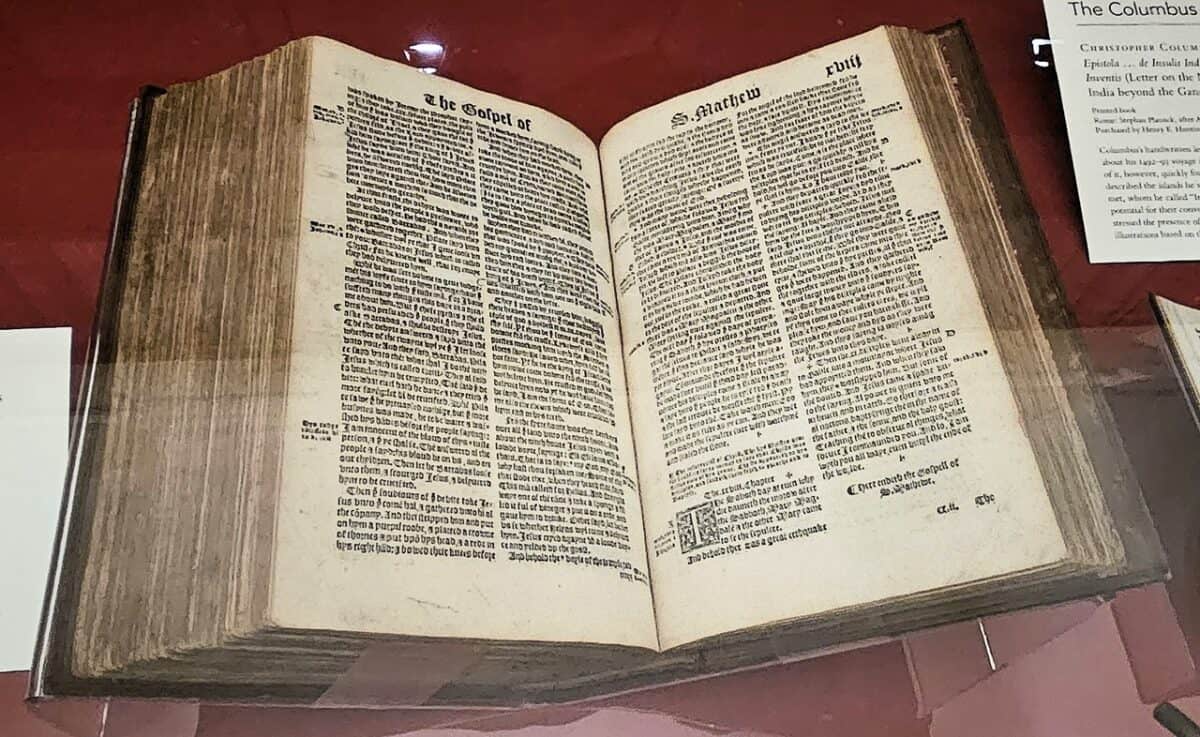
| Date of Publication | 1535 CE |
| Place of Origin/Discovery | Switzerland or Belgium, sources differ |
| Language | Modern English |
| Translator | Assembled by Myles Coverdale |
The Coverdale Bible is yet another entry into the English canon. This features the first real modern translation of the Biblical text into what you could call Modern English. Myles Coverdale served as the chief architect of this volume as well, and this marks the last entry of his on the list.
This was an interesting book, to say the least, with a purported 20 editions spread out over the years. Printing first took place in 1535, continuing to 1553. Myles Coverdale made a living out of Bible printing, as you can no doubt tell from his multiple entries on this list. The printing press was still a new technology at the time, so it makes sense that such an important book would be printed.
6. The Leningrad Codex
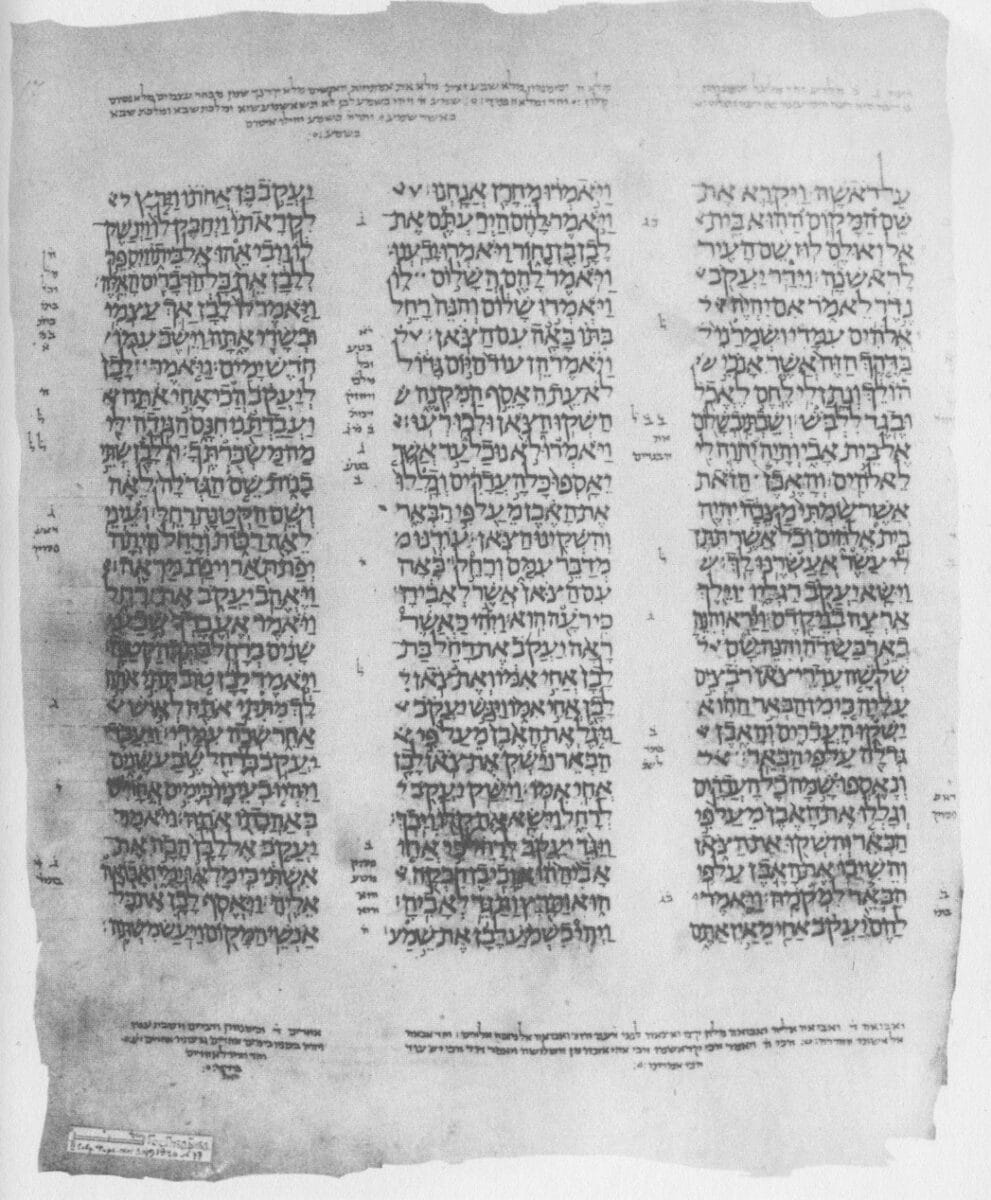
| Date of Publication | 1008 CE |
| Place of Origin/Discovery | Egypt |
| Language | Hebrew |
| Translator | Samuel ben Jacobs and others |
This is the first entry on this list to be in a different language, and one that comes from a time when Rome was still a world power. Originally written in Hebrew, the Leningrad Codex is the oldest complete translation of the Bible in the language.
There are a few notable things to keep in mind when looking at this particular book. For starters, it is in fantastic shape for a book that is well over a thousand years old. Another notable thing is that the books of the whole volume are in a different order than the agreed-upon canon established by the Council of Rome.
5. The Aleppo Codex
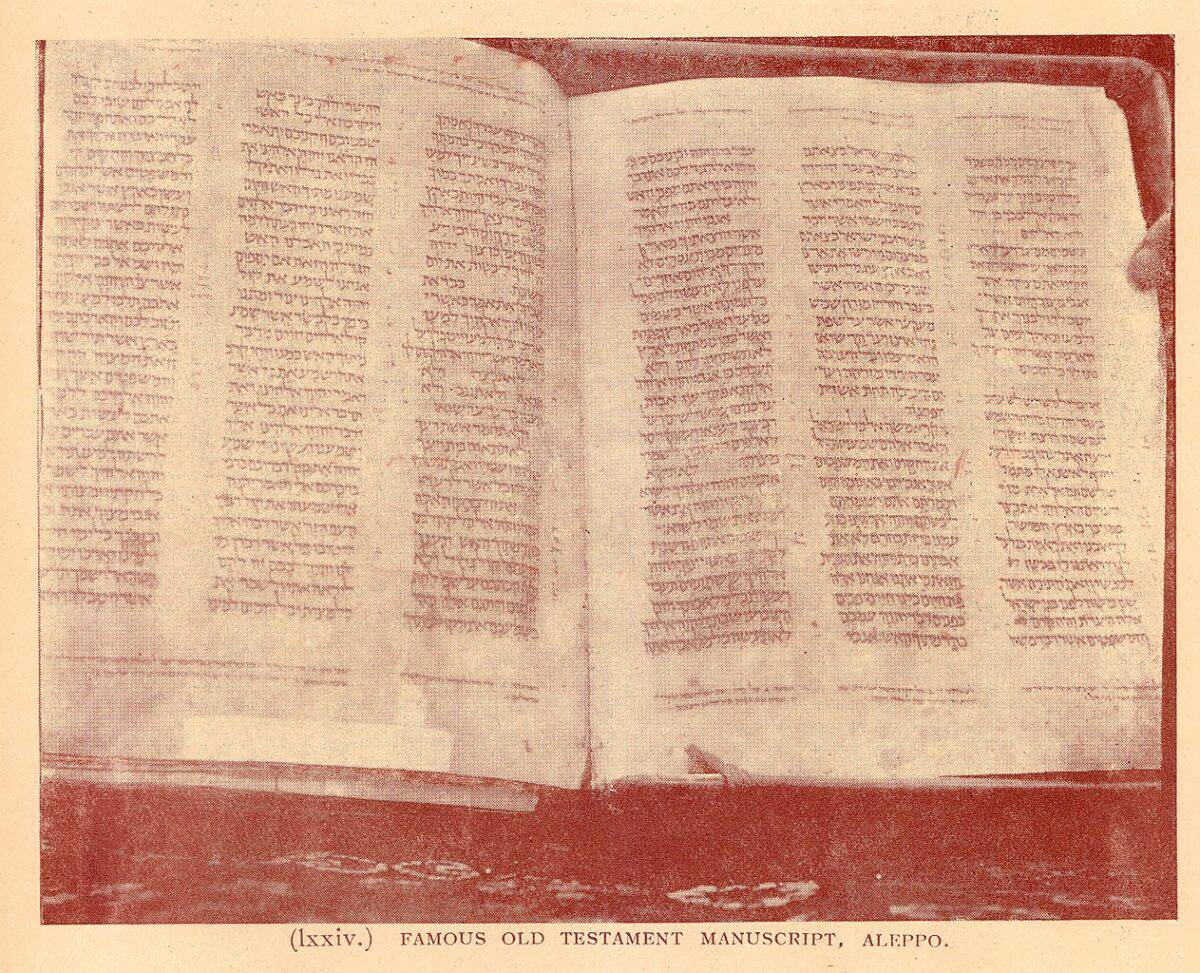
| Date of Publication | 930 CE |
| Place of Origin/Discovery | Israel |
| Language | Hebrew |
| Translator | Masoretes |
The Aleppo Codex is another Hebrew translation that predates the previous Leningrad Codex. While it is an older volume, it is mostly incomplete, in stark contrast to the other book. The Aleppo Codex was passed around different communities in modern-day Israel, Egypt, and Syria for hundreds of years before ending up in Israel in 1958.
You can still see this book on display, which makes it a tourist destination for historians. The Aleppo Codex can currently be found at the Shine of the Book in the Israel Museum. A number of pages from the book were lost over the course of riots during the 1940s, which led to a search for the missing material. Sadly, searches have proven to be fruitless over the years.
4. Codex Ephraemi Reciptus
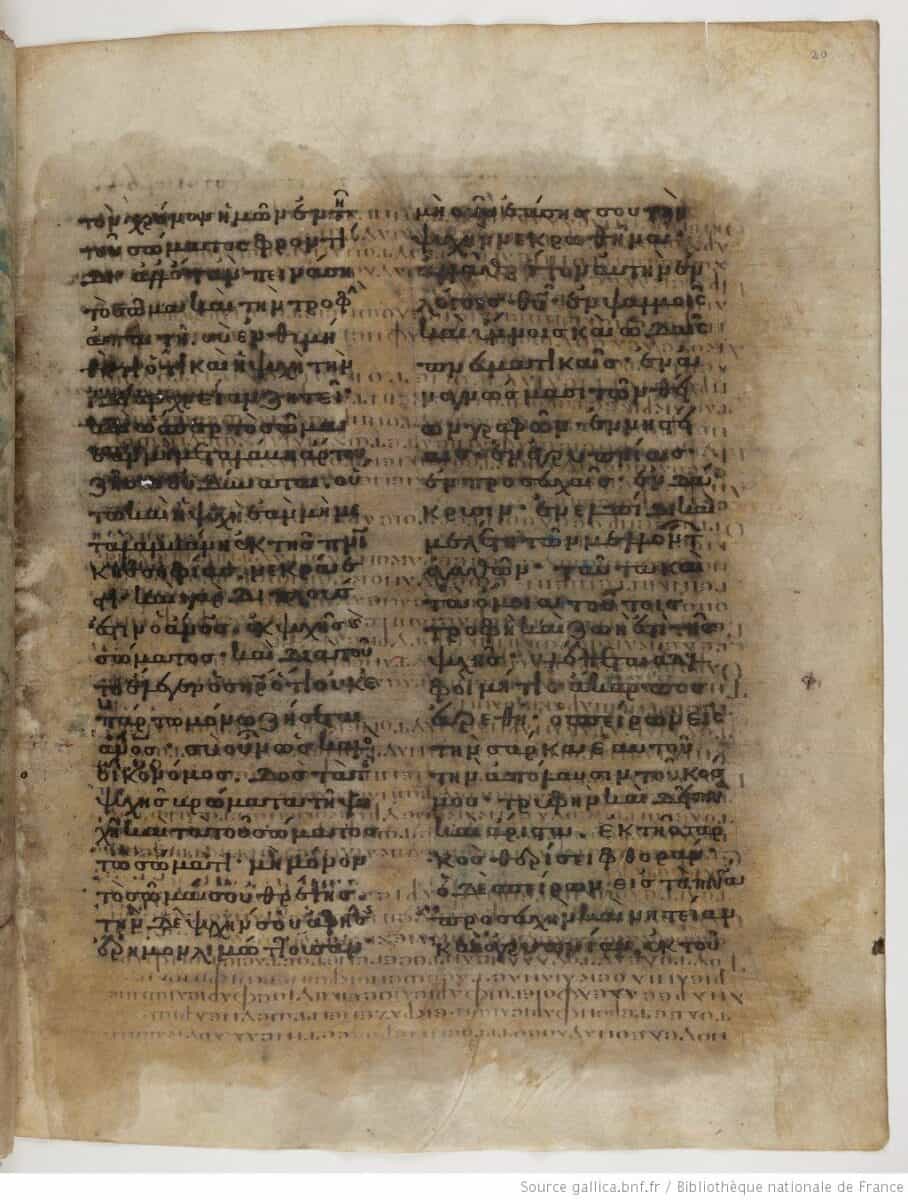
| Date of Publication | 460 CE |
| Place of Origin/Discovery | Possibly Egypt, sources are incomplete on its origin |
| Language | Greek |
| Translator | Unknown |
While the Bible itself was originally written in Hebrew, the more common early translations to be found in Antiquity were in Greek. The Codex Ephraemi Reciptus is one such volume, and its origins are lost to the sands of time.
The book itself is incomplete as most of the Old Testament is missing and a chunk of the New Testament is also unaccounted for. What makes this particular volume so remarkable is that it looks to be the work of a pair of writers, rather than a team as was the practice in Antiquity.
This is another tourist attraction that you can find in the Bibliotheque Nationale de France.
3. Codex Alexandrinus
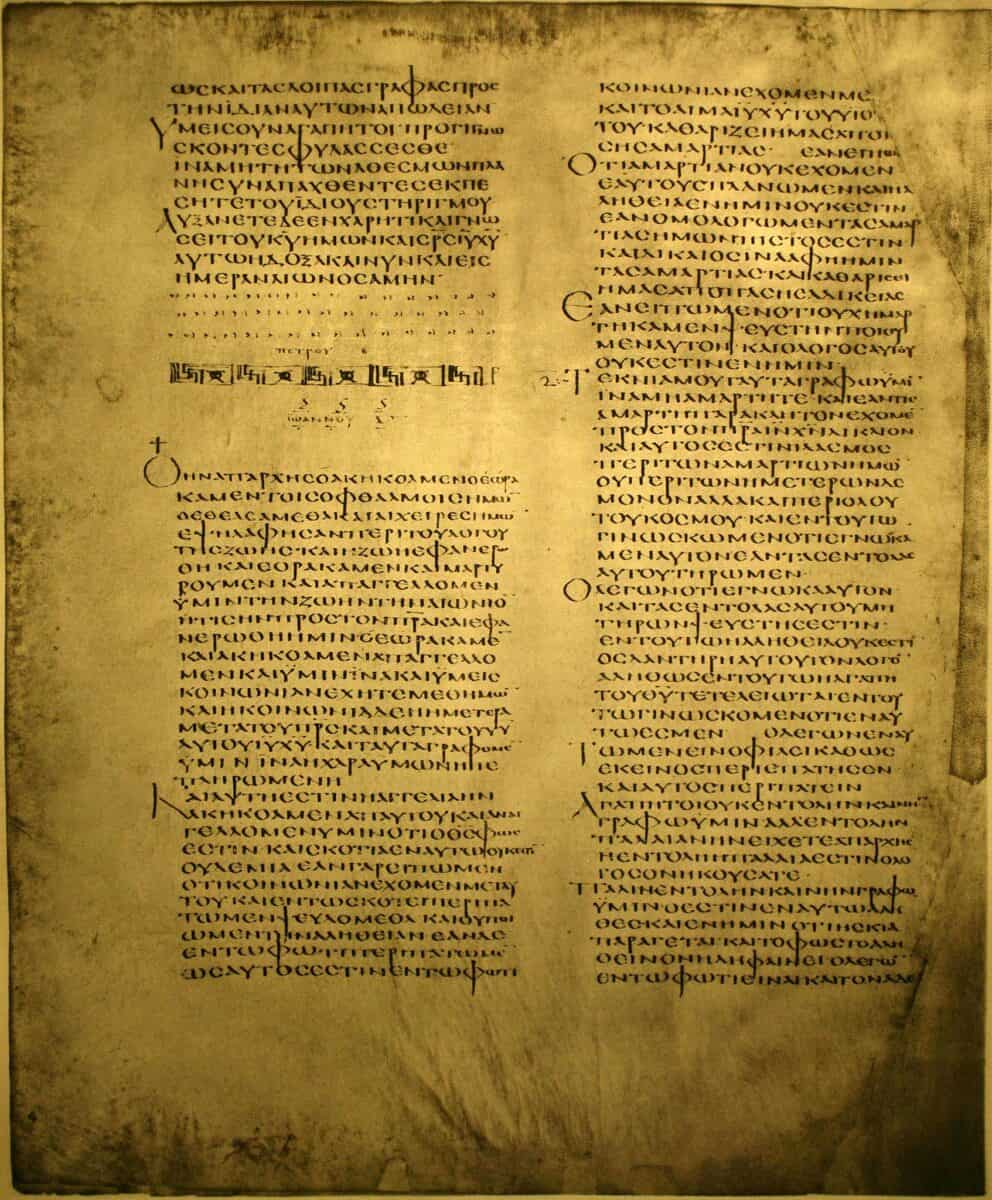
| Date of Publication | 400 to 440 CE |
| Place of Origin/Discovery | Egypt |
| Language | Greek |
| Translator | Unknown |
The Codex Alexandrinus is a mostly complete Greek translation of the Bible. Its true origins are unknown, but it is a handwritten volume scribed on vellum. For those curious, vellum is dried animal hide, and was a more durable material for important texts than the likes of early paper or parchment.
What makes this particular book remarkable is that this is where most modern interpretations of the New Testament come from. The book itself is a mostly complete version of the later volumes of the Bible, making it especially noteworthy from a historical perspective.
You can find copies of this online, as the British Library provides scans for curious readers. Due to the age and delicate materials in use, this isn’t a book to handle haphazardly, but if your Greek is up to par you might get a kick out of reading it.
2. Codex Sinaticus
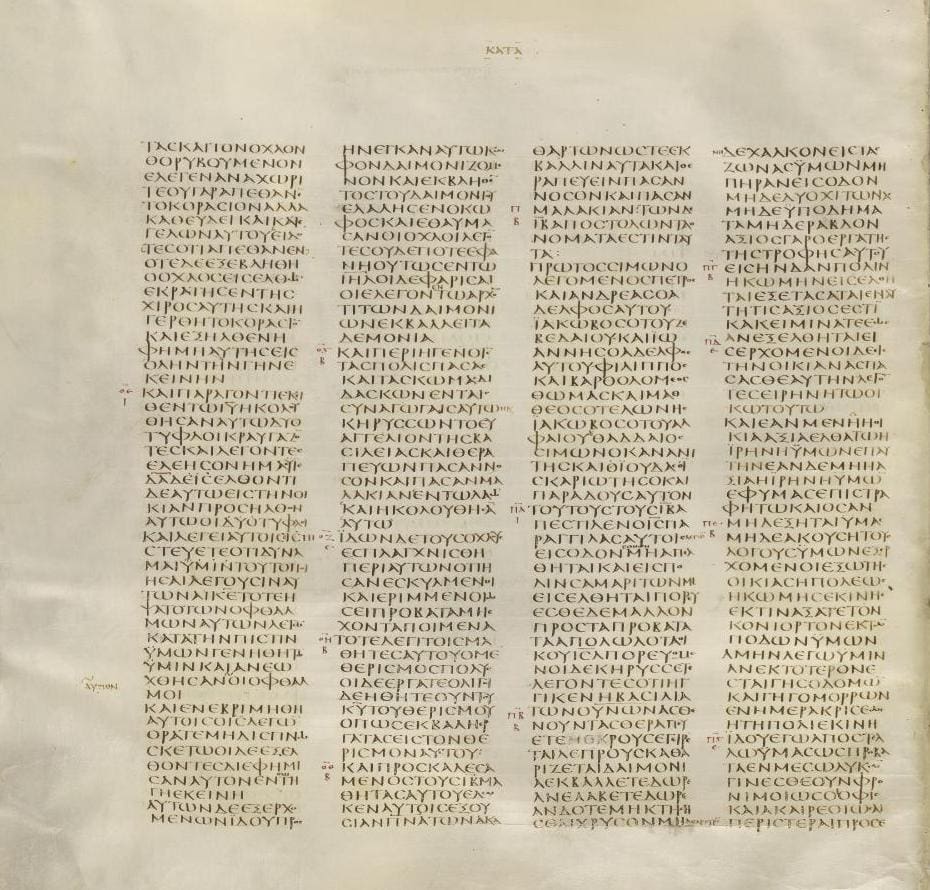
| Date of Publication | 330 to 360 CE |
| Place of Origin/Discovery | Egypt |
| Language | Greek |
| Translator | Unknown |
Another British library resident, the Codex Sinaticus was once thought to be the oldest known Bible in the wide world. That has since been proven wrong, as you’ll see with our final entry. However, this is still a noteworthy book and is in the more common Greek of the time.
Like some of the other older Bibles on the list, it is missing large portions of the text, with a good chunk of the Old Testament itself missing. The full New Testament is present, however, and you can readily view this online.
1. Codex Vaticanus
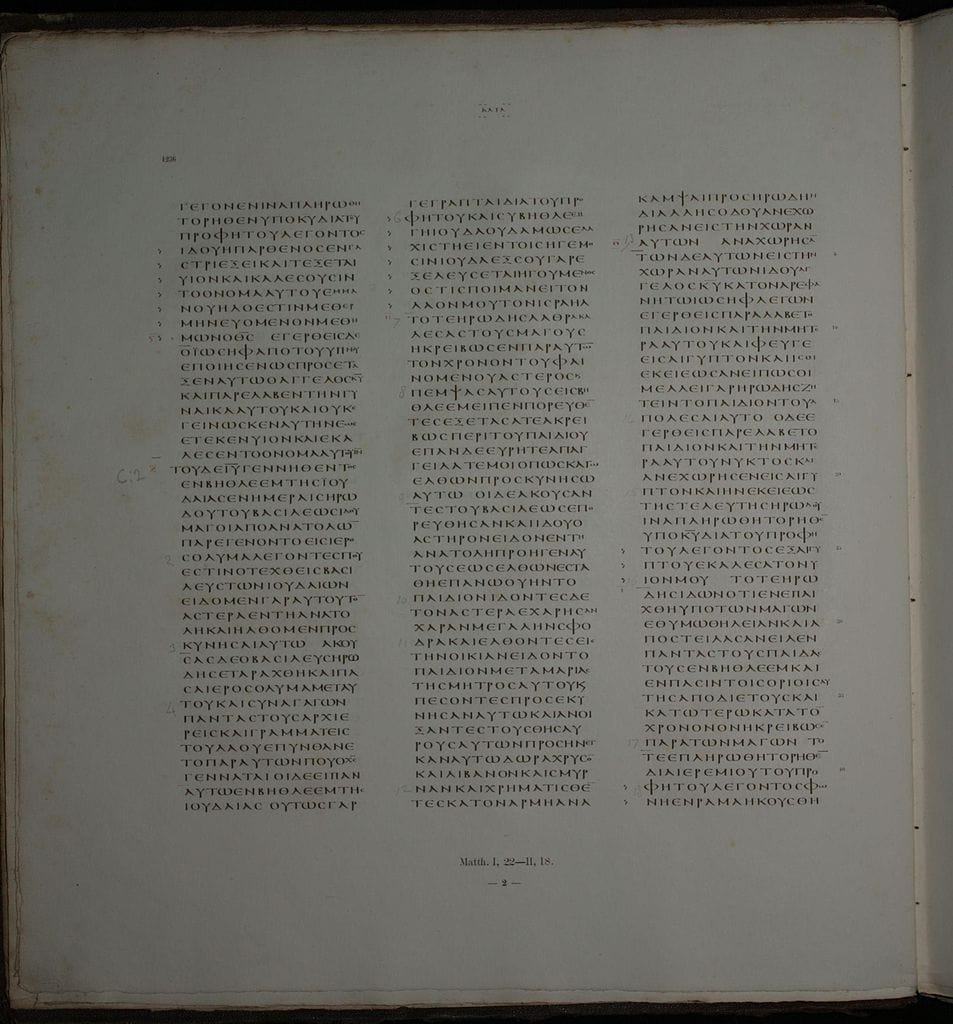
| Date of Publication | 300 to 305 CE |
| Place of Origin/Discovery | Possibly Rome or Greece |
| Language | Greek |
| Translator | Unknown |
It might not come as a shock, but the Codex Vaticanus is a resident of Vatican City. The book has resided in the Vatican’s library since the 15th century and is the oldest known Bible in existence. The Codex Vaticanus is incomplete, with parts of Genesis, Hebrews, and Revelations missing.
Biblical scholars point to this as one of the most accurate of the translations in existence, and it was compiled while Rome was still a major player in the world. Interestingly, this is another volume printed on vellum and is believed to be the work of three scribes. It is a stunning book, even if most readers won’t get to handle it in their lifetimes.
The image featured at the top of this post is ©Javier Cruz Acosta/Shutterstock.com.








